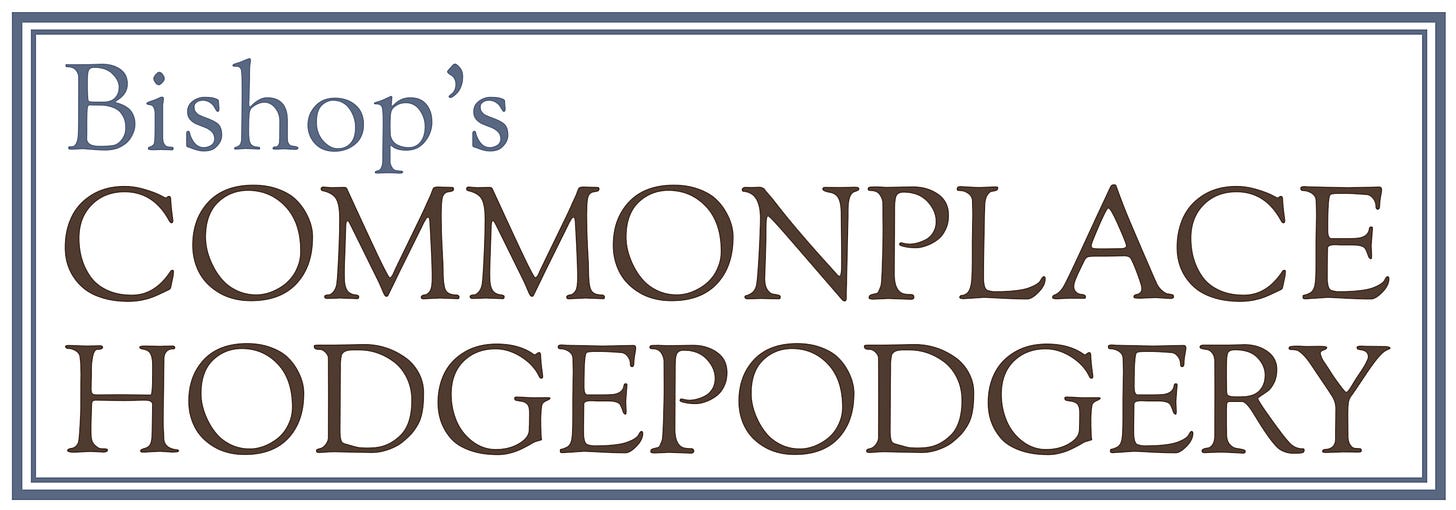A Protestant Considers the BVM
My relationship with each of my parents is pretty complicated. There’s no need to get into specifics or to treat them disrespectfully, so it’s enough simply to say that we’ve had our ups and downs, we’ve made mistakes, and we’ve hurt each other. My parents’ separation when I was 18 and divorce a couple of years later has been one of the defining events of my entire life.
I was reflecting on all this the other day, and I thought (not for the first time) how grateful I am for the fatherhood of God: having God the Father as my father has been a huge help in healing the wounds in my relationship with my own earthly father. “It’s a pity,” I thought, “that I don’t have something similar to help with my mother wounds.” The answering thought was immediate, unbidden, unexpected, and in many ways unwanted: Mary.
It wasn’t an audible voice, but it sort of dropped in almost as if I’d heard it. I experienced it as something that came from outside of myself — probably as close as possible to hearing without sound, if that makes sense. And for the first time in my life, I began to seriously consider whether we Protestants have lost something in our disregard for the Blessed Virgin Mary.
The Magnificat
One of the first things I realized as I began asking the Mary question is that I pray Mary’s prayer, the Magnificat, almost every day as part of my evening prayers. I had been doing this — praying Mary’s prayer in Mary’s voice — without even realizing the significance of it.
Here’s the text from Luke 1:46–55:
“My soul magnifies the Lord,
and my spirit rejoices in God my Savior,
for he has looked on the humble estate of his servant.
For behold, from now on all generations will call me blessed;
for he who is mighty has done great things for me,
and holy is his name.
And his mercy is for those who fear him
from generation to generation.
He has shown strength with his arm;
he has scattered the proud in the thoughts of their hearts;
he has brought down the mighty from their thrones
and exalted those of humble estate;
he has filled the hungry with good things,
and the rich he has sent away empty.
He has helped his servant Israel,
in remembrance of his mercy,
as he spoke to our fathers,
to Abraham and to his offspring forever.”
So, it’s not as if Protestants have no connection to Mary at all. Praying the Magnificat is certainly scriptural, and we’re the sola scriptura people. But it’s one thing to pray Mary’s words and another thing entirely to pray to Mary. Right?
The Hail Mary
Here’s something surprising: Martin Luther prayed the Hail Mary on his rosary. (Half of it, at least — I’ve heard that he didn’t pray the second half.) If it was good enough for Martin Luther, is it good enough for me?
I decided to examine the prayer line by line to see if I objected to anything:
Hail Mary, full of grace, the Lord is with thee…
No real objections aside from a slight hitch in addressing Mary personally, which still feels like I’m ‘praying to’ her. But this is from the Bible, adapted from the angel Gabriel’s greeting in Luke 1:28: “Greetings, O favored one, the Lord is with you!” (ESV) or, in the KJV, “Hail, thou that art highly favoured, the Lord is with thee.”blessed art thou among women…
No objections. This is taken directly from the Bible, the first half of Elizabeth’s greeting to Mary in Luke 1:42.and blessed is the fruit of thy womb, Jesus.
No objections. This is the second half of Elizabeth’s greeting to Mary in Luke 1:42, with the addition of Jesus’ name.Holy Mary, Mother of God…
No real objections here, either, although the Theotokos language isn’t native to me. Still, I’m comfortable with the title: If Mary is the mother of Jesus, and if Jesus is God, then Mary is the mother of God. The syllogism is airtight.pray for us sinners, now and at the hour of our death.
No real objections aside from a residual and generic catch on asking for the saints’ intercession — but I’m mostly over that.
And that’s the whole thing. When it comes to the text of the prayer, I don’t have any significant objections to it. But I’ve still never prayed it, and I currently don’t intend to. If I were to pray it, it would have to be preceded by another prayer: “I hope this is right, God, and please forgive me if it’s not” — at which point, if I’m not sure it’s right, why would I do it?
Marian Dogma
If it’s not the actual text of the Hail Mary that bothers me, then, I think it’s the act of devotion. I’ve become fairly comfortable asking the saints to pray for me or for others, but this seems like an entirely different thing — this is addressing Mary (“Hail Mary”) in what can only be fairly described as a devotional prayer.
A friend introduced me to the word hyperdulia, and from my mouth it still carries a Protestant, pejorative bite. And, even if I could come around to (some and moderate) Marian devotion, there’s a whole host of Marian titles (e.g., coredemptrix, mediatrix of all graces, Queen of Heaven) and Marian dogmas (immaculate conception, perpetual virginity, assumption, etc.) that I’m not comfortable with and frankly can’t see myself ever signing on to.
Honoring the Blessed Virgin
But I also want to return to the words of the Magnificat, “from now on all generations will call me blessed,” and admit that we Protestants have done a poor job of this. We don’t call Mary blessed — likely out of the understandable desire to avoid what I think we rightly consider to be the excesses of Marian dogma.
If there’s a spectrum from Protestant neglect of Mary on one side to Catholic hyperdulia on the other side, I would love to move closer to the middle. I think Mary deserves an elevated place in the church, a place of honor and respect and appropriate reverence. She is blessed among women, and the church in every generation should say so.
We should have a high regard for Mary because she is the mother of Christ; because God himself had a high regard for her; and because it is right and good to honor our fathers and mothers in the faith. We should favor her simply because she is the “favored one” (Luke 1:42).
But I also think there are more practical benefits that could come from a higher view of Mary. For my part, looking to the mother of Christ might help with healing the wounds in my relationship with my own mother. I think it could also go a long way toward an generating a naturally elevated view of femininity in the church; I suspect that one reason we’re so confused about lady pastors is that we don’t have an appropriate place of honor for the feminine, so we stick them in the pulpit instead. I think it could temper the particular sins of domestic abuse, of hyper-patriarchy, and of domineering men. I think it could restore a purity and a sacred appreciation for women in a nonsexual manner that could help with chastity and in the Christian man’s battle against lust. (I’m sure there would be other benefits, too, that I’m not thinking of right now.)
So, there you have it: My aim is to reclaim a place of honor and high regard for the Blessed Virgin Mary in the Protestant church without crossing into excessive devotion or extrabiblical dogmas. But I’m not sure how to do that — or if it’s even possible.
What do you think?
Subscribe to Josh Bishop writes.
And check out my other Substack publications:







Overall, Via Media! The only bit I wonder about is your question about if it is right: "...if I’m not sure it’s right, why would I do it?"
Ignorance is actually where a ton of mercy and grace is given. You don't know if driving to work today or walking to work is right. You don't know if seed oils are right to eat. You don't know if pipe tobacco will be your ultimate demise. I know these are not one to one comparisons but, given that the Hail Mary won't kill you and God shows grace toward the ignorant, and a huge amount of Christians have prayed the prayer in the past, it seems there is good reason to do the same even though you're not sure it is right.
I have been considering this myself, though I have not said the prayer either.
That was a thoughtful reflection and I appreciate the honesty and humility Josh shows in wrestling with this It’s true Protestants have often gone so far in avoiding Marian devotion that we’ve sometimes neglected the honor Scripture itself gives her The Bible clearly says “From now on all generations will call me blessed” Luke 1:48 and it’s right that we recognize that At the same time we must always be careful that our reverence doesn’t drift into worship because only God is worthy of that Mary herself said “My soul magnifies the Lord and my spirit rejoices in God my Savior” Luke 1:46–47 Even she points us to Jesus not to herself I think there’s a beautiful balance here we can honor Mary as the chosen servant of God a model of humility and faith without elevating her to a place Scripture doesn’t She reminds us what it looks like to say “Behold the servant of the Lord be it unto me according to thy word” Luke 1:38 Maybe that’s the heart of it to honor Mary the way her own Son would want us to with gratitude respect and imitation of her faith but with our hearts fixed on the One she magnified Jesus Christ